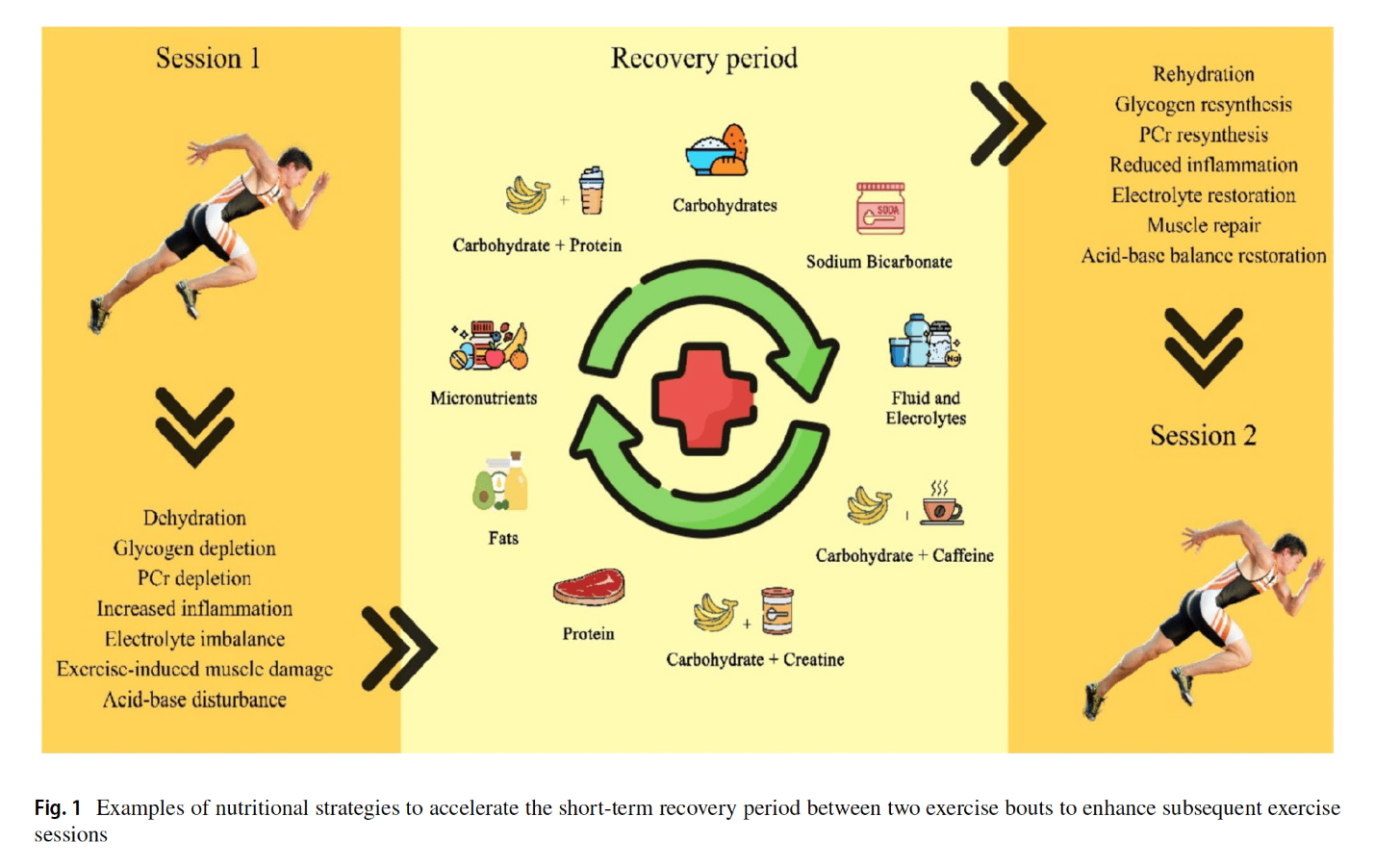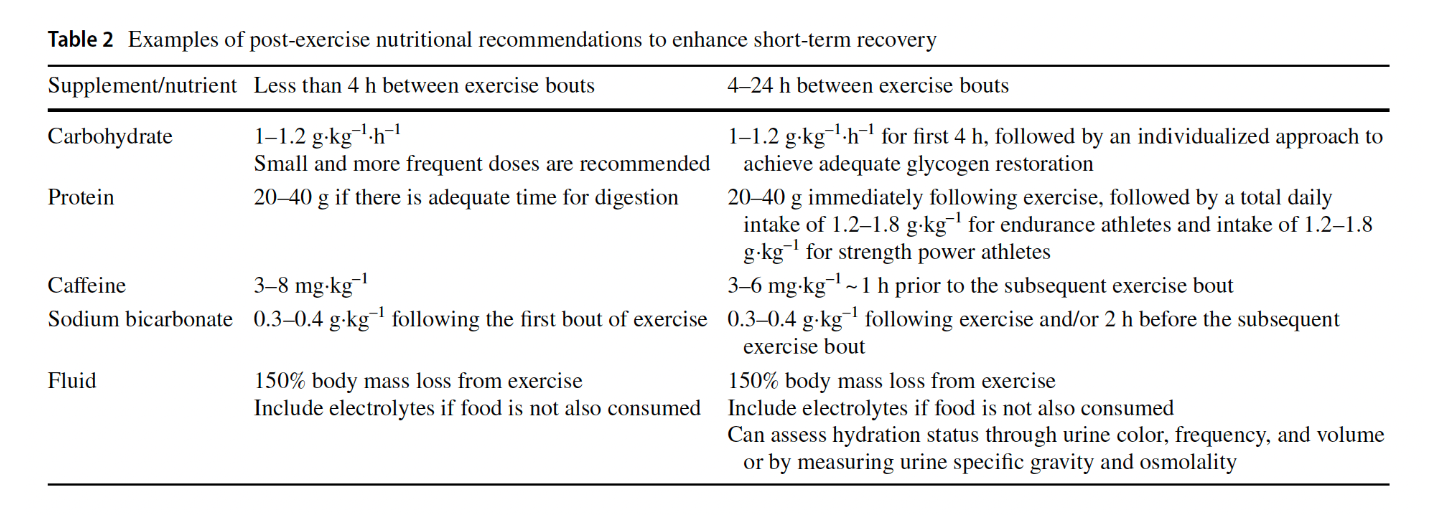Athletes often have short windows between bouts of exercise, especially during tournaments, two-a-days, or back-to-back practices.
Recovery in these tight windows isn't just about rest, as nutrition can make or break readiness for the next performance.
This review examines the best evidence-based nutrition strategies to speed up recovery and enhance performance in sessions occurring 2–24 hours later.
How can nutrition optimize recovery and performance when recovery time is limited (2–24 hours)?

What did the researchers do?
The researchers reviewed 100+ studies from PubMed and Google Scholar.
Studies focused on how carbs, protein, fat, hydration, creatine, caffeine, sodium bicarbonate, and micronutrients affect recovery and performance.
Categorized evidence by strength:
- Grade I (strong): Carbohydrates, protein, hydration
- Grade II (moderate): Creatine, caffeine, sodium bicarbonate
- Grade III (limited): Fats, micronutrients
What were the results?
Carbohydrates
- Muscle glycogen replenishment is most effective when 1–1.2 g/kg/hr carbs are consumed for the first 4 hours post-exercise.
- Glucose alone or glucose + fructose mix (2:1 ratio) works best.
- High GI carbs increase glycogen storage but don’t always improve performance.
Protein
- 20–40g high-quality protein post-exercise boosts muscle repair and synthesis.
- Whey > casein or plant protein for rapid recovery.
Carb + Protein Co-ingestion
- Useful when carb intake is suboptimal.
- Enhances performance slightly (~0.6–1.6%) but can make a real difference at elite levels.
Hydration
- Aim to replace 150–200% of fluid lost through sweat within 4–8 hours.
- Milk, oral rehydration solutions, and juice are superior to water.
- Sports drinks are no better than water unless combined with food.
Creatine + Carbs
- Enhances glycogen resynthesis (~18–82% improvements) over 24 hours.
- Most effective in untrained or moderately trained individuals.
Caffeine + Carbs
- May speed glycogen replenishment and reduce soreness—but only when carb availability is low.
- Inconsistent performance benefits, likely due to variability in dosage, timing, and individual tolerance.
Sodium Bicarbonate
- Effective when taken post-exercise and recovery is <90 minutes.
- Helps buffer acidity, enhancing performance in repeated high-intensity efforts.
Fats & Micronutrients
- Omega-3s and some polyphenols reduce muscle damage but don’t reliably enhance next-day performance.
- High-dose antioxidants may blunt adaptations if used chronically—best used acutely around competition.

What does this mean?
- Carbs are king: Prioritize them post-exercise for quick glycogen resynthesis.
- Protein supports repair: Add 20–40g to meals for muscle recovery.
- Hydration isn’t just water: Include sodium and consider milk-based drinks.
- Add-ins like caffeine, creatine, and NaHCO₃ can help, but aren’t essential unless recovery time is short or training is intense.
- Micronutrients and fats may support health, but their acute impact on performance is limited.
Limitations
- Most studies are on male athletes.
- Individual differences (genetics, training status) affect supplement response.
- More research needed in real-world team sport settings.
Coach's Takeaway
- Prioritize 1–1.2 g/kg/hr carbs for the first 4 hours after hard sessions.
- Combine with 20–40g high-quality protein for best results.
- Rehydrate aggressively, up to 150-200% of your body weight lost.
- For back-to-back games or events, consider caffeine or NaHCO₃ (with care).




